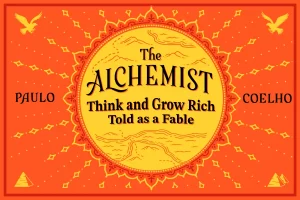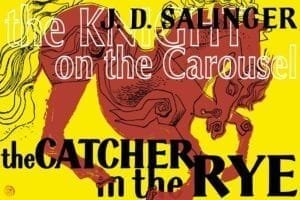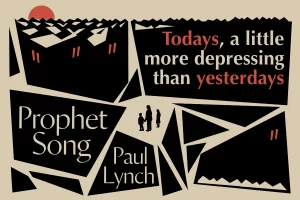To not drown in hopelessness, teeter onward, totter onward

Stoner ain’t about getting stoned and all, at all, in fact it’s far from it. Getting stoned is about extracting the most out of that instant right. Getting a kick out of staring into the mundane waves, or summoning a pet dinosaur. I wouldn’t know. Drugs are illegal where I live. Assuming that were true though, Stoner is about a man’s entire life. And in many cases, well, there isn’t always pleasure to be exacted from every second of the day is there. Short form videos changed the paradigm, but we all know that the dopamine stuff is a problem of its own. Besides, the man was born in 1891. Now you might be thinking of something along the lines of eww. Not ewwwwww but just a short jab gut reaction eww. Like why would I want to read about how we discovered fire – eww. I say that because two things just popped into my mind. First, last year, that is in 2023, I was talking to my cousin. She seemed to be struggling to find … I mean let me rephrase that just in case she sees this oneday. She seemed to be in the process of finding out which way she wants to progress. So naturally being economical and stocks might have come into the conversation. As soon as I said this she blurted out that I’m old. Or was it “why’d you become so old.” She did a good job in making me stop give her advice. Second, my good friend Warren Buffet suggested that I read The Intelligent Investor by Benjamin Graham (darn she had a point). And all the references were from the nineteen hundreds. Perhaps the eighties too? Like the days when cents used to mean something. I couldn’t feel more detached from the book. And I worry that you might have the same preconception towards this book, or to William Stoner. But please hold that thought. Everything in his life is so very relatable. Think of it as a super relatable TikTok that you end up sharing to your group chats for the thirtieth time of the day. It’s that, except you wouldn’t have had to send the twenty-nine videos in advance, because this book has like a hundred relatable points already. For instance, you sometimes witness geniuses in your life right. And you think about what you’ve got and it is an ability no more than what one could call passion, or enthusiasm, only with a lifetime dedication could which flourish into something remotely remarkable. It’s probably not going to happen, with the nine to fives and all. Call it. I’m going on social media. Well, I introduce you William Stoner.
Recommendation for Readers
Written from scratch by Junic Andy So – Meston Ecoa
No assistance was received from any form of Artificial Intelligence.
No assistance was received from any grammar or vocabulary enhancing software.
No Spoiler Summary
contains no spoilers
William Stoner was born in 1891 to a working class farmer. Upon the suggestion of his father he goes to study Agriculture, but he falls in love with literature at first sight. He also falls in love with a woman at first sight. His life unfolds from there, guided by a mixture of willpower and the power of fate over which he assumes no control.
One Paragraph Review
contains no spoilers
This is the life of an ordinary man, with no exceptional gift. In his life are some exhilarations, and the more notable misfortunes. It seems misfortunes are always more punctual. They never fail to visit you in regular intervals. In this regards William Stoner is the layperson. Perseverance and patience are required to progress anywhere meaningful, but the myriad of headwinds come in the way, as if with intention to forever ground the ordinary to the mediocre world. This book allows one to be a bystander watching the entire life of a man. It evokes the helplessness on the reader’s end. A helplessness of having to just sit and watch all these events happen to our beloved character. A helplessness of knowledge that even our being in the fictional world couldn’t amend the situation. A helplessness that we know so fondly, as the equivalents are existent in our very lives as well. A misfortune is a mere phenomenon. The helplessness is always the real pang in the heart. What John Williams managed to get right is the level of relatability. The generality of life that he draws out through a man born in 1891 is mesmerizing.
Some Information
• 288 pages, 90,300 words
• Vocabulary level: Medium
• Library of Congress Subjects: Literature—Study and teaching—Fiction, English teachers—Fiction, Middle West—Fiction
• Goodreads Genres: Fiction, Classics, Historical Fiction, Literature, Novels, American
• Meston’s Rating: 4.0
One Paragraph Summary
contains spoilers
Chapter 1 (1910 – age 19)
William Stoner is born in 1891 to a family of a working class farmer in Missouri. He enrolls in the College of Agriculture, soon to deviate from the course and his background to pursue his love for literature, inspired through lectures of Archer Sloane.
Chapter 2 (1914 – age 23)
WWI hits when Stoner is in his doctorate program. Stoner is not compelled to enlist himself contrary to many others who leave university for the military, including two of his close mates Dave Masters and Gordon Finch. Masters dies during the war.
Chapter 3 (1918 – age 27)
War has ended victoriously and faculty return to school. Sloane is nonetheless surrounded by a veil of sadness. Finch who was able to continue his studies during the war also returns. At a party Stoner falls in love with Edith Bostwick at first sight. She comes from a wealthy family in St.Louis and is marked by her extreme introvertedness. Her parents give their blessing for the marriage with apparent reluctance.
Chapter 4 (1918 – age 27)
Stoner and Edith get married. Her taciturn quietness, rigid impersonality, awkwardness, lack of physical vigor and the blazing newlywed love make their honeymoon an unmemorable one. It forebodes a rough marriage ahead.
Chapter 5 (1921 – age 30)
Stoner knows his marriage is a failure. Edith is unresponsive to his words nor his touch. One night the couple invites Finch and his fiancé. During a conversation Edith would be reminded of the Europe trip she had foregone for marriage and would utterly break down into tears of misery thereafter becoming even more reserved. She decides she wants a child. She grows even more lethargic after giving birth, leaving their daughter Grace largely in the hands of Stoner.
Chapter 6 (1924 – age 33)
Sloane passes away and Hollis Lomax joins the faculty to fill his space. His bluntness reminds Stoner of Dave. Despite his lethargic wife Stoner manages to keep things from falling apart, hustling between taking care of Grace, household chores, lecturing and working on a book. Edith’s sudden decision to get a hefty loan from her father to afford a bigger house brings financial strain, but overall Stoner is content in both his personal life and career.
Chapter 7 (1927 – age 36)
Stoner’s parents pass away. Soon after, Edith’s father commits suicide after his bank fails. During her time in St.Louis with her family, Stoner is at a place of newfound balance. He has become closer to his daughter. At work, he grows a heightened passion for his teaching.
Chapter 8 (1927 – age 36)
Edith has also undergone a transition. She put on a new fashion, a new hairstyle and clothes. This followed a frenzy of discarding every gift her father had given. Back home, as if she cannot withstand the contented balance Stoner had found himself, she takes measures cunningly to disturb his peace. As a result Stoner grows distant with his daughter. His study space at home made into Edith’s, made him unable to have academic discussions with his students there nor focus on his academics from home any longer. As if Stoner feels a sense of liability to Edith, or because Edith’s slyness is too intricate, he succumbs in every turn. His misery grows. He endures.
Chapter 9 (1931 – age 40)
Stoner admits Charles Walker to attend one of his class. Stoner made an exception since Walker had to meet the requirements to graduate. Also, he had a recommendation from Lomax. However, Stoner is eventually appalled by his arrogance, tardiness and arguable misdemeanor that he fails him.
Chapter 10 (1931 – age 40)
Stoner fails Walker on his preliminary oral as well as he failed to satisfactorily answer his interview questions. Lomax is outraged by Stoner’s assessments on his beloved student and threatens to press charges on Stoner for his academic integrity.
Chapter 11 (1932 – age 41)
The conflict between Stoner and Lomax deepens. Lomax’s status as head of department makes life difficult for Stoner.
Chapter 12 (1933 – age 43)
Stoner falls in love with a student named Katherine Driscoll. He had taught her once from the class that Charles Walker was also in. She approaches him first requesting for supervision of her thesis. Their feelings grow as he makes visits to her place to advise her work. She had liked Stoner since that class. They start their love affair.
Chapter 13 (1933 – age 43)
It seems life is giving him a break. Stoner is truly happy with Katherine. However, the world is catching up. Apparently everyone in town knows of the affair. Edith is strangely fine with it but it is Lomax that pressures an end to the relationship. They realize running away is not an option. It is the passion and personality of each other that they are drawn into and these cannot survive outside the academia. The two end things. Katherine leaves the university.
Chapter 14 (1936 – age 46)
True happiness exiting his life, his aging is expedited. He continues to struggle through the atrocious lecture schedule, an aftermath of Lomax’s wrath. WWII breaks out. He feels a void that Sloane must have felt as the community leaves for war. He gets a little revenge on Lomax, regains some control of his life, as he lectures far advanced materials during an introductory class rendering Lomax to give back courses that pertain to his specialty.
Chapter 15 (1937 – age 47)
Stoner grows ill. He manages at the university and spends more time at home. Meanwhile, Grace grows increasingly depressed. The instability of Edith and her parents’ marriage seem to have fueled her depression. First year of university, she gets pregnant. Edith insists on a marriage with the Sophomore. He soon enrolls in the army, and dies.
Chapter 16 (1945 – fifties)
Grace’s depression continues. Stoner works harder at the university. Lomax pressures Stoner to resign work earlier. Stoner finds out he has cancer.
Chapter 17 (1956 – age 65)
Stoner is on his deathbed. He is ruminating on his life. He realizes the many things that went wrong in his life. He briefly wonders if these failures collectively make his life too a failure. He grasps his book as if it were the corroboration of his existence and the values that his life yielded.










